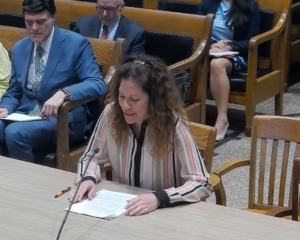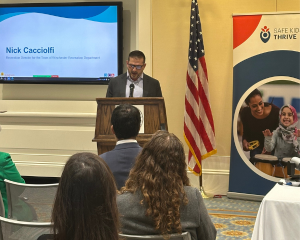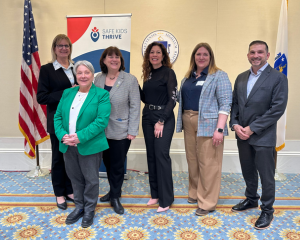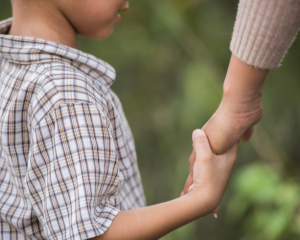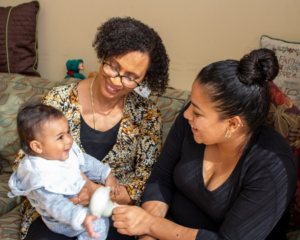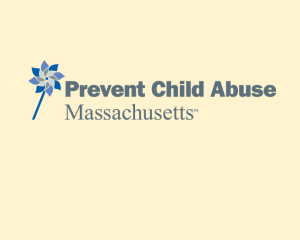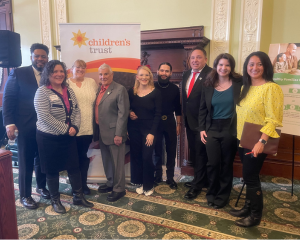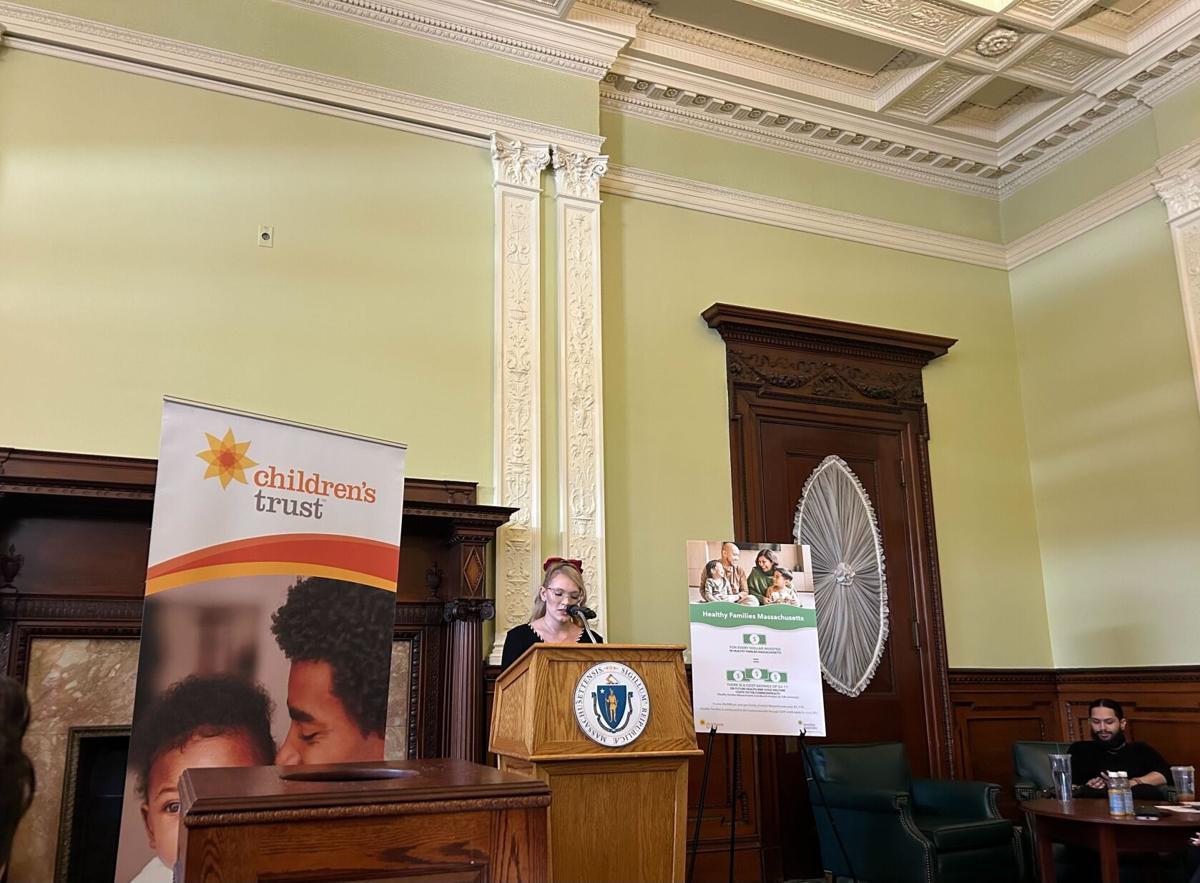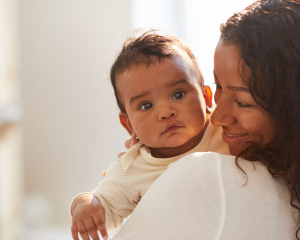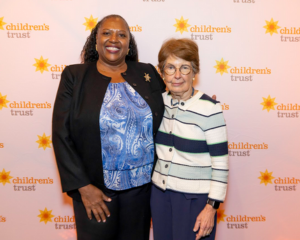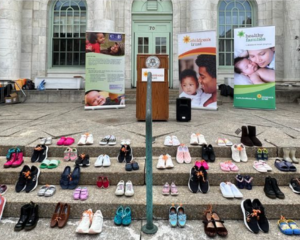Last month, Sarita Rogers, Chief Program Officer at the Children's Trust, was invited to testify before the Massachusetts Joint Committee on State Administration and Regulatory Oversight in support of House Bill1157/Senate Bill 1999, An Act Addressing the Racial Wealth Gap. This legislation develops a publicly funded trust fund program, known as Baby Bonds, for children under one who are enrolled in Transitional Aid to Families with Dependent Children (TAFDC) or who are in the Department of Children and Families’ (DCF) foster care system. At age 18, eligible individuals can access funds for asset-building purposes, including pursuing post-secondary education, buying a home, or starting a business. Enrollment in the program is automatic.
Sarita was a member of the Task Force that developed the plan for baby bonds, working on eligibility and funding. You can read Sarita’s testimony below or watch a video of her remarks here.
“With the mission to prevent child abuse and neglect in all its forms, the Children’s Trust works upstream in a prevention framework and administers strengths-based family support programs, often reaching low-income families, among its other activities. The Centers for Disease Control and Prevention has identified increasing economic supports to families as a child abuse prevention strategy, decreasing parenting stress and promoting nurturing caregiving.
Here in MA, when we ask families participating in our funded programs what barriers exist to their being able to move from merely surviving to thriving, they cite income in
This is the population baby bonds seek to reach. One of the goals of Healthy Families is to promote increased educational attainment, job, and life skills. parents receive support and resources to achieve these goals and evaluations of Healthy Families show that participants are more likely to complete a year of college, less likely to be homeless, and are better advocates for themselves and their children years after enrollment.
These striving young families still report struggling to get out of poverty even as they make progress and achieve milestones important to their family’s and child’s safe and healthy development. The barriers to improving their economic achievement can seem insurmountable. Still, these parents, like all parents, want what's best for their children, they dream of a future in which their children do better than they have, and they want to believe that this future is possible.
When asked, these parents overwhelmingly agree or strongly agree that the future looks good for their families. Providing these families with an investment in their child’s future, like a baby bond, allows them to continue to dream big, know that their hard work will be rewarded, and, by having provided a stepping stone to financial success, understand that the Commonwealth believes in the possibility of their family’s achievements, too. The Children's Trust strongly supports the establishment of baby bonds and Bill H.1157/S 1999 as tool to reduce the wealth gap and promote family well-being and requests that it is reported out favorably.”

